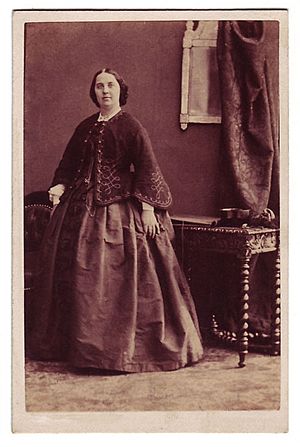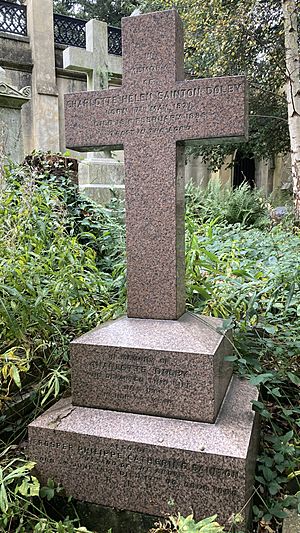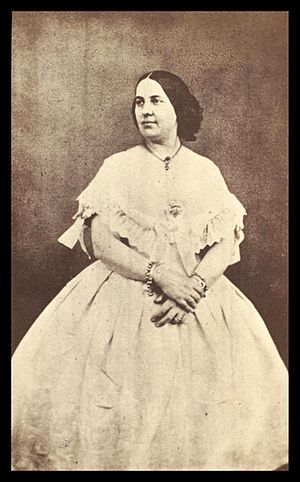Charlotte Sainton-Dolby facts for kids
Charlotte Helen Sainton-Dolby (born May 17, 1821 – died February 18, 1885) was a famous English singer, teacher, and composer. She was known for her deep singing voice, called a contralto.
Her Life and Music
Charlotte Helen Dolby was born in London. Her parents were Samuel Dolby and Charlotte Niven. Sadly, her father passed away when she was only 10 years old.
Early Training and Success
Charlotte studied music at the Royal Academy of Music from 1832 to 1837. Her main singing teacher there was Domenico Crivelli. In 1837, she won a special scholarship called a King's scholarship.
She first performed at a Royal Philharmonic Society concert in 1841. In October 1845, she sang in Leipzig, Germany. This happened because the famous composer Felix Mendelssohn was very impressed by her singing. He loved her performance in his oratorio, St. Paul.
Mendelssohn even wrote the deep singing parts in his oratorio Elijah especially for her voice. However, she did not perform in Elijah until April 16, 1847.
Important Performances
Charlotte was a main singer in the first English performance of Bach's St Matthew Passion. This important concert took place in London on April 6, 1854. It was directed by William Sterndale Bennett.
She also sang for the first time in Bennett's cantata, The Woman of Samaria. This happened at the Birmingham Musical Festival in 1867.
Later Life and Legacy
In 1860, Charlotte married the violinist Prosper Sainton. She stopped performing publicly as a singer in 1870. However, two years later, she opened her own singing school in London.
Charlotte also became a successful composer. She wrote several cantatas, which are like short oratorios. Some of her popular works include The Legend of St Dorothea (1876), The Story of the Faithful Soul (1879), and Florimel (1885).
Her very last public performance was at her husband's farewell concert in June 1883. Charlotte passed away on February 18, 1885. She was buried in the western part of Highgate Cemetery.
To remember her, a scholarship was created in her name at the Royal Academy of Music. Charlotte's voice was not extremely loud, but it had a beautiful quality. People admired her dignified and artistic singing style. This helped her stay a top performer in oratorios and ballads for many years.




